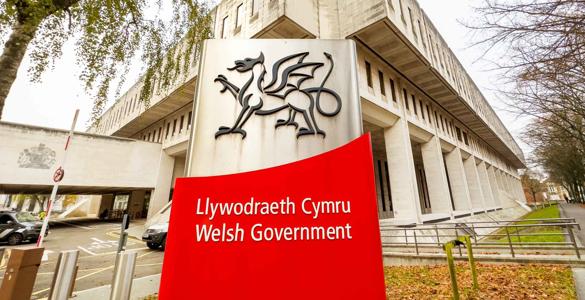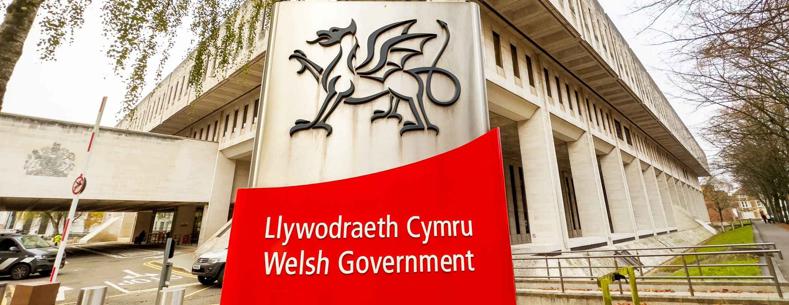“Gone are the days of corrosive squabbling” – that’s what the Secretary of State for Wales, Jo Stevens MP, stated in December 2024. She was reflecting on the first few months of intergovernmental relations (IGR) between the new UK Government and the Welsh Government.
The UK Government committed to reset its relationship with the Welsh Government and to work together in a “partnership in power” that delivers for the people of Wales.
As we approach a year in office for the UK Government, this article explores how IGR between the Welsh and UK governments have changed.
A “reset” since the General Election?
Both the Welsh and UK governments have spoken of a fundamental reset in their relationship, with the First Minister, Eluned Morgan MS, stating that the shared commitment to improve relations has already been “very evident”.
There have been signs of improvements in IGR. According to the Welsh Government, there was “early and thoughtful engagement” on legislation that would apply to Wales in the UK Government’s legislative programme.
The Welsh Government has also cited increased funding following the UK Government’s autumn budget, including £25 million allocated to coal tip safety, as evidence that the Chancellor is “listening to Wales”.
The Secretary of State for Wales listed “results” of the reset, including agreement on funding for investment zones and collaboration on water regulation.
Points of friction?
There are, however, several areas where disagreements remain.
For example, little progress appears to have been made on further devolution of the justice system or the Crown Estate, despite the Welsh Government publicly advocating for both.
There have also been tensions over proposed changes to the UK welfare system, with the First Minister stating that she is “reserving [her] judgment” on the proposals until there is a better understanding of the impact on Wales.
The Cabinet Secretary for Finance and Welsh Language, Mark Drakeford MS, also criticised the UK Government’s decision to use the Barnett Formula to distribute funds to support public sector employers following a rise in national insurance. He estimated that this would leave the Welsh Government up to £65 million short compared to the amount needed to cover the rise for public sector employers in Wales. More broadly, the Welsh Government supports reform of the Barnett Formula, however, a Welsh Government official said that the UK Government “doesn't seem interested in any substantial reform” in this area.
When asked about potential disagreements with the UK Government, the First Minister told a Senedd Committee “this is devolution – we’re not always going to agree”.
How have formal IGR structures been used?
A three-tier structure for formal IGR has been in place since 2022. We’ve written previously about this.
The Welsh Government has agreed to report to the Senedd on meetings within formal intergovernmental structures. It also agreed to provide committees with at least one month’s notice of relevant meetings, as well as a written summary of issues discussed within two weeks of the meeting, as far as possible.
Frequency of meetings
In an earlier article, we discussed an increase in the use of formal intergovernmental structures in 2023 (35 meetings) when compared to 2022 (23 meetings).
Both the Secretary of State for Wales and the First Minister have said that formal IGR structures have been underused in recent years.
However, since the 2024 General Election, only 20 formal meetings have been confirmed involving the Welsh and UK governments (21 if the new UK Tree Planting Taskforce is included). This does not suggest an increase when compared with recent years. However, a Welsh Government official recently said that during 2025 there has been a “picking up of the pace” of IGR meetings.
Transparency
The Welsh Government’s notice and summaries of meetings have been inconsistent; the Senedd received a month’s notice for just 2 out of 20 confirmed meetings. The Senedd received a summary within 2 weeks for 8 of these meetings.
The level of detail of summaries also varies. For example, a summary of a recent meeting of the Finance Interministerial Standing Committee contains over 200 words of discussion points, while a summary of the Interministerial Group for Trade contains fewer than 30 words of discussion points.
When summaries contain little detail of discussions, it is harder for Senedd committees to scrutinise IGR and understand how decisions are being made.
Informal meetings
Meetings outside of the formal structures have also occurred between UK and Welsh government Ministers. These have generally been mentioned in passing, reported through statements, or referenced on social media.
For example, the First Minister told a Senedd Committee in March 2025 that she has had 6 meetings with the Prime Minister, Sir Keir Starmer MP, since the UK General Election. However, the Senedd has only received a summary for one of these meetings.
The Welsh Government has no obligation to report on meetings outside of formal structures, which makes it more difficult for stakeholders and Senedd committees to keep track of IGR.
Could formal IGR be strengthened?
The Welsh Government has expressed support for setting out intergovernmental structures in law.
The First Minister said that the Welsh Government would seek “to progress and build on the conclusions and recommendations of the Independent Commission on the Constitutional Future of Wales”. The Commission recommended that:
The Welsh Government should propose that the UK Parliament legislates for intergovernmental mechanisms to ensure “a duty of co-operation and parity of esteem between the governments of the UK”.
In March 2025, the First Minister said that, while this was “not off the agenda”, the Welsh Government was first focusing on ensuring frequent intergovernmental meetings within existing structures.
A new forum
The UK Government has established a new high-level intergovernmental forum – the Council of the Nations and Regions. The Council is chaired by the Prime Minister, and brings together the heads of the devolved governments in Wales, Scotland and Northern Ireland, and mayors from English regions. Its aim is to “facilitate partnership working” to tackle “some of the biggest and most cross-cutting challenges”.
The Council met for the first time in October 2024. On the same day, the Prime Minister and Heads of Devolved Government Council (i.e., without English regional representation) met. The UK Government said in March 2025 that the two existing high-level councils will continue to meet on the same day in future to avoid duplication and ensure efficient IGR.
The Welsh Government has welcomed the establishment of the new Council. It is expected to meet next in spring 2025.
Too soon to tell?
It’s perhaps too early to draw a definitive conclusion on IGR between the two governments.
While the general rhetoric is certainly more positive – both governments have spoken of a “reset” of relations and a “partnership in power” – there have been several public disagreements.
Similarly, despite talk of formal intergovernmental structures being underused, there isn’t yet evidence that meetings within formal structures are happening more frequently than under the previous UK Government.
Article by Adam Cooke, Senedd Research, Welsh Parliament






